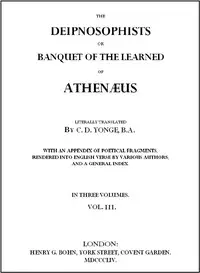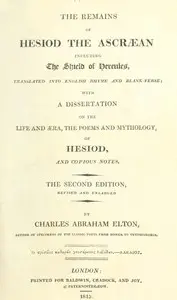** "The Characters of Theophrastus" by Theophrastus is an ancient Greek collection of thirty descriptive sketches that showcase flawed human behaviors and recognizable character types in society. Written in the late 4th century BC, this book presents an early survey of moral and social defects, giving readers a glimpse into Athenian society through portraits of individuals exhibiting traits such as flattery, cowardice, boorishness, and avarice. Instead of complex narratives, the book vividly illustrates each character's actions in daily life, reflecting the absurdities and follies of human nature that persist across cultures and time. The book provides observations and insights into the human condition. **

The Characters of Theophrastus A Translation, with Introduction
By Theophrastus
** Witness a gallery of unflattering portraits from ancient Greece, where human flaws like avarice and boorishness come to life in vivid detail.
Summary
About the AuthorTheophrastus was an ancient Greek philosopher and naturalist. A native of Eresos in Lesbos, he was Aristotle's close colleague and successor as head of the Lyceum, the Peripatetic school of philosophy in Athens. Theophrastus wrote numerous treatises across all areas of philosophy, working to support, improve, expand, and develop the Aristotelian system. He made significant contributions to various fields, including ethics, metaphysics, botany, and natural history. Often considered the "father of botany" for his groundbreaking works "Enquiry into Plants" and "On the Causes of Plants," Theophrastus established the foundations of botanical science. His given name was Tyrtamos ; the nickname Theophrastus was reputedly given to him by Aristotle in recognition of his eloquent style.
Theophrastus was an ancient Greek philosopher and naturalist. A native of Eresos in Lesbos, he was Aristotle's close colleague and successor as head of the Lyceum, the Peripatetic school of philosophy in Athens. Theophrastus wrote numerous treatises across all areas of philosophy, working to support, improve, expand, and develop the Aristotelian system. He made significant contributions to various fields, including ethics, metaphysics, botany, and natural history. Often considered the "father of botany" for his groundbreaking works "Enquiry into Plants" and "On the Causes of Plants," Theophrastus established the foundations of botanical science. His given name was Tyrtamos ; the nickname Theophrastus was reputedly given to him by Aristotle in recognition of his eloquent style.














